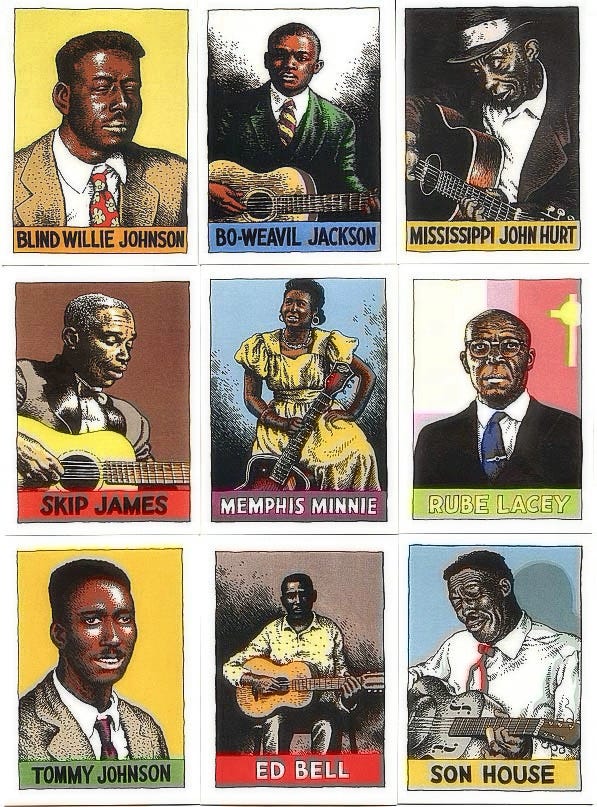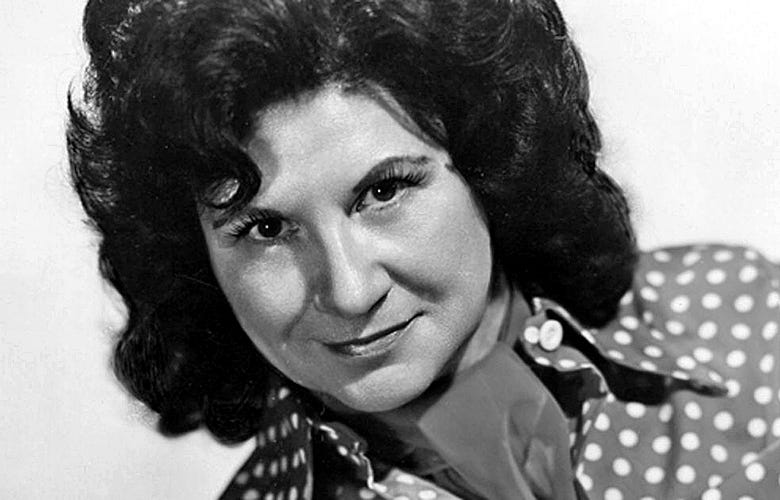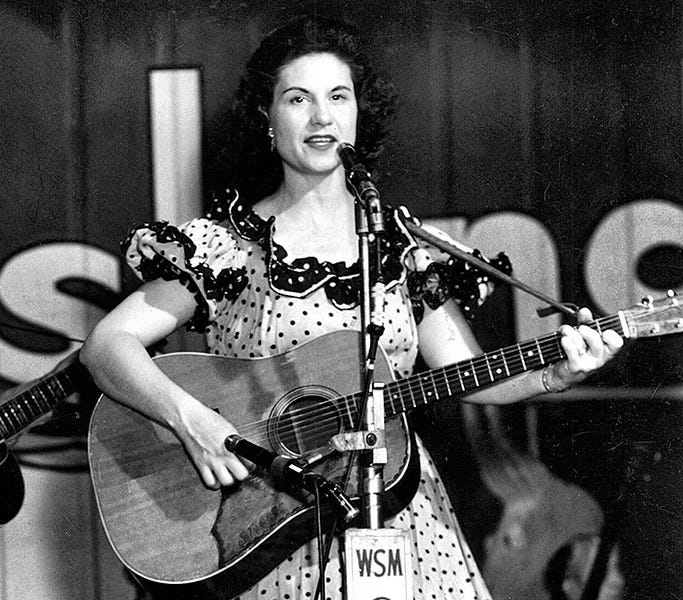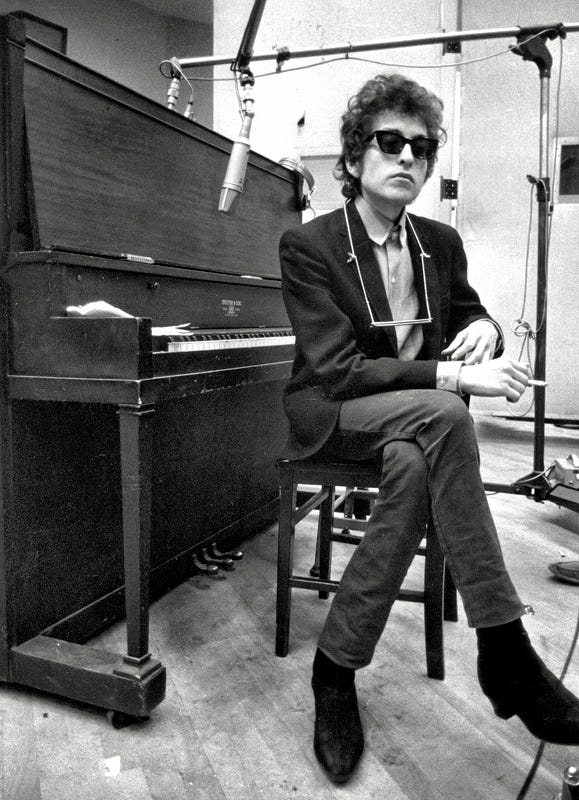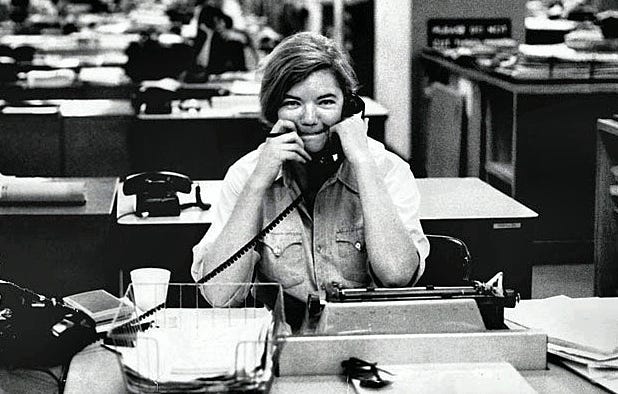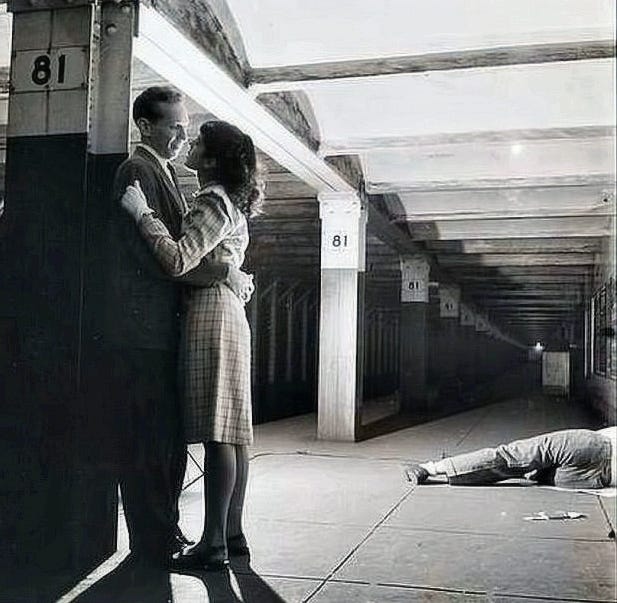R. Crumb is 80 years old today
R. Crumb self-portrait
Robert Crumb, or R. Crumb, is 80 years old today.
An artist, illustrator and musician, Crumb is recognized for the distinctive style of his drawings and his critical, satirical, subversive view of the American mainstream. Crumb was a founder of the underground comix movement and is regarded as its most prominent figure.
Though one of the most celebrated of comic book artists, Crumb's entire career has unfolded outside the mainstream comic book publishing industry. One of his most recognized works is the "Keep on Truckin'" comic, which became a widely distributed fixture of pop culture in the 1970s. Others are the characters Devil Girl, Fritz the Cat and Mr. Natural.
Crumb has frequently drawn comics about his musical interests in blues, country, bluegrass, cajun, French Bal-musette, jazz, big band and swing music from the 1920s and 1930s.
In 2006, he prepared, compiled and illustrated the book R. Crumb's Heroes of Blues, Jazz & Country, with accompanying CD, which derived from three series of trading cards originally published in the 1980s.
Crumb was the leader of the band R. Crumb & His Cheap Suit Serenaders, for which he sang lead vocals, wrote several songs and played banjo and other instruments. Crumb often plays mandolin with Eden and John's East River String Band and has drawn three covers for them: 2009's Drunken Barrel House Blues, 2008's Some Cold Rainy Day and 2011's Be Kind To A Man When He's Down on which he plays mandolin.
Crumb has released CDs anthologizing old original performances gleaned from collectible 78-rpm phonograph records. His That's What I Call Sweet Music was released in 1999 and Hot Women: Women Singers from the Torrid Regions in 2009. Crumb drew the cover art for these CDs as well.
Crumb was inducted into the comic book industry's Will Eisner Comic Book Hall of Fame in 1991.
R. Crumb produced a series of trading cards for heroes of the blues, jazz and country, originally published in the 1980s
Kitty Wells, the “Queen of Country Music,” was born 104 years ago today.
Wells died on July 16, 2012 in Madison, Tennessee, from complications of a stroke at age 92.
Her 1952 hit recording, "It Wasn't God Who Made Honky Tonk Angels,” made her the first female country singer to top the U.S. country charts, and turned her into the first female country star. Her Top 10 hits continued until the mid-1960s, inspiring a long list of female country singers who came to prominence in the 1960s.
Born Ellen Muriel Deason, she was one of six children of Charles Cary Deason and his wife, Myrtle, in Nashville. She began singing as a child, learning guitar from her father, who was a brakeman on the Tennessee Central Railroad.
Her father, Charles, and his brother were musicians and her mother, Myrtle, was a gospel singer. As a teenager, she sang with her sisters, who performed under the name the Deason Sisters on a local radio station beginning in 1936.
At the age of 18, she married Johnnie Wright, a cabinet-maker who aspired to country-music stardom (which he'd eventually achieve as half of the duo Johnnie & Jack). Wright and Wells performed as a duo. It was at this time she adopted, "Kitty Wells," as her stage name. Johnnie Wright chose the name from a folk song called "Sweet Kitty Wells."
Before Wells' rise to stardom with "Honky Tonk Angels," Roy Acuff and the Smoky Mountain Boys toured with Wright and Wells for a time. Acuff advised Wright not to make his wife his show's headliner, because he thought women could not sell country music records.
In 1952, Paul Cohen, an executive at Decca Records, approached Wells to record "It Wasn't God Who Made Honky Tonk Angels." Wells was disenchanted with her career prospects and was considering retirement, but agreed to the session (at Owen Bradley’s studio on May 3, 1952) because of the $125 union scale recording payment.
"I wasn't expecting to make a hit," said Wells later. "I just thought it was another song." The tune was an answer song to Hank Thompson's "The Wild Side of Life," and its lyrical treatment of seductive, wayward women.
Wells' single retorted, "It's a shame that all the blame is on us women."
The record's message was controversial at the time, and was banned by many radio stations. NBC, in particular, was troubled by the lyric, "It brings back memories of when I was a trustful wife."
Wells' slight alteration of "trustful" to "trusting" lifted the network ban on the song. It was temporarily banned from the Grand Ole Opry. Nevertheless, audiences couldn’t get enough of it.
The single took off during the summer of 1952, and sold more than 800,000 copies in its initial release. It was the first single by a female singer to peak at #1 in the eight-year history of the country music chart, where it remained for six weeks.
Wells ranks as the sixth most successful female vocalist in the history of Billboard's country charts, behind Dolly Parton, Loretta Lynn, Reba McEntire, Tammy Wynette and Tanya Tucker. In 1976, she was inducted into the Country Music Hall of Fame.
In 1991, she became the third country music artist, after Roy Acuff and Hank Williams, and the eighth woman to receive the Grammy Lifetime Achievement Award.
Here, Wells performs “Searching (For Someone Like You)” at the Grand Ole Opry in 1955.
Kitty Wells: A Personal Remembrance
I was in high school, but already working full time at my local radio station, WHPB, in Belton, South Carolina. This station was in the heart of country music territory and dozens of acts either visited the station or performed nearby.
One of the major singers of the day was Kitty Wells. She was performing in nearby Anderson and I wrote up a promo for her to read — one of those plugs that said when she was in the area that she listened to my radio show.
After her performance that night, I approached her backstage. She was very friendly and personable. But when I handed her the promo to read, a disturbed look came over her face.
She pulled me down close to her and whispered in my ear: “Honey, I can’t read.”
I was floored that the Queen of Country Music could not read.
But I kept cool and politely asked, “Then would you mind just ad-libbing a promo for my show?” I told her what to say and she recited it perfectly in a single take.
I ran that promo as long as I had the show and gained a new respect for the adversity one of the great stars of country music had overcome to make it to the top of her profession.
Bob Dylan’s Highway 61 Revisited album was released on this day in 1965 — 58 years ago.
Released by Columbia Records, Dylan used rock musicians as his backing band on every track of the album, except for the closing 11-minute ballad, "Desolation Row." He combined driving, blues-based music with the subtlety of poetry to create songs that captured the political and cultural chaos of contemporary America.
Leading with the hit single, "Like a Rolling Stone," the album features songs that Dylan has continued to perform live over his long career, including "Ballad of a Thin Man" and "Highway 61 Revisited."
The album was named after the major American highway which connected his birthplace, Duluth, Minnesota, to southern cities famed for their musical heritage, including St. Louis, Memphis, New Orleans and the Delta blues area of Mississippi.
Highway 61 Revisited is ranked as one of best rock era albums. "Like a Rolling Stone" was a Top 10 hit in several countries and has become a rock classic, as have "Desolation Row" and "Highway 61 Revisited."
Then 20 years old, bass player Harvey Brooks was called to play on the album. Here’s his part one of his account of that recording session.
John Phillips was born 87 years ago today.
Known as Papa John, Phillips was a member and leader of the singing group, The Mamas & the Papas. He was a singer, guitarist, songwriter and promoter — most notably of the 1967 Monterey Pop Festival.
He was the father of Jeffrey, Mackenzie, Chynna, Tamerlane and Bijou Phillips.
Born in Parris Island, South Carolina, Phillips father was a retired Marine Corps officer who won an Oklahoma bar from another Marine in a poker game on the way home from France after World War I.
His mother, a Cherokee Native, met his father in Oklahoma. Phillips grew up in Alexandria, Virginia, where he was inspired by Marlon Brando to be "street tough.” From 1942 to 1946, he attended Linton Hall Military School in Bristow, Virginia, where he formed a group of teenage boys who sang doo-wop songs. He played basketball at George Washington High School, where he graduated in 1953.
Phillips longed to have success in the music industry and traveled to New York to find a record contract in the early 1960s. His first band, The Journeymen, was a folk trio, with Scott McKenzie and Dick Weissman. They were fairly successful, putting out three albums and several appearances on the 1960s TV show, Hootenanny. All three albums, as well as a compilation known as "Best of the Journeymen," were reissued on CD.
He developed his craft in Greenwich Village, during the American folk music revival, and met his future The Mamas & the Papas band mates, Denny Doherty and Cass Elliot, in the Village around that time. Lyrics of their song,” Creeque Alley,” describe this period.
While touring California with The Journeymen, he met the woman who would become his second wife, the teenage Michelle Gilliam, with whom he had an extramarital affair. Their affair forced the dissolution of his first marriage, and he married Michelle in 1962 and would stay with her until 1970. The couple had one child together, Chynna Phillips, vocalist of the 1990s' pop trio, Wilson Phillips.
Phillips was the primary songwriter and musical arranger of The Mamas & the Papas. Early in the band's history, John and Michelle were responsible for writing most of the band's songs. John would often come up with a melody and some lyrics and Michelle would help him complete the lyrical portion of the song.
John Phillips also wrote "San Francisco (Be Sure to Wear Flowers in Your Hair)" in 1967 for former The Journeyman band mate, Scott McKenzie. "San Francisco" is widely regarded as emblematic of 1960s American counterculture music.
Phillips also wrote the oft-covered, "Me and My Uncle,” which was a favorite song cover frequently performed by The Grateful Dead.
He also helped promote and played in The Monterey International Pop Music Festival held June 16 to June 18, 1967 in Monterey, California. The festival was planned in just seven weeks and was developed as a way to validate rock music as an art form in the way jazz and folk were regarded. It was the first major pop-rock music event in history.
The Phillips family became Hollywood celebrities, living in the Hollywood Hills and socializing with stars such as Jack Nicholson, Warren Beatty and Roman Polanski. The group broke up largely because Cass Elliot wanted to go solo and because of some personal problems among Phillips, Michelle and Denny Doherty.
John Phillips died on March 18, 2001 in Los Angeles of heart failure at the age of 65.
In September, 2009, John's daughter, Mackenzie Phillips, stated in a memoir, High on Arrival, that she and her father had a ten-year incestuous relationship. She said that the relationship began when she was 19-years-old in 1979, after Phillips raped her while they were both under the influence of heavy narcotics on the eve of her first marriage.
Geneviève Waïte, John's wife at the time the abuse allegedly occurred, denied the allegations and said they were totally opposite of his character. Michelle Phillips, John's second wife, also stated that she had "every reason to believe [Mackenzie's account is] untrue."
Here, The Mamas and the Papas sing “California Dreamin’” at the 1998 Rock and Roll Hall of Fame ceremony.
Molly Ivins was born 79 years ago today.
A Texas newspaper columnist, populist, political commentator, humorist and author, Ivins’ writings often employed irony and satirical humor to make a very serious points. She enjoyed telling stories about the Texas Legislature, which she simply called "The Lege,” calling it one of the most corrupt, incompetent and funniest governing bodies in the nation.
In 2003, she coined the term, "Great Liberal Backlash of 2003," and was a passionate critic of the 2003 Iraq War. She is also credited with applying the nicknames "Shrub" and "Dubdub" to George W. Bush.
An example of her writing, from her 1993 essay, "Taking a Stab at Our Infatuation with Guns," she begins by saying:
“Let me start this discussion by pointing out that I am not anti-gun. I'm pro-knife. Consider the merits of the knife. In the first place, you have catch up with someone in order to stab him. A general substitution of knives for guns would promote physical fitness. We'd turn into a whole nation of great runners. Plus, knives don't ricochet. And people are seldom killed while cleaning their knives.
“As a civil libertarian, I of course support the Second Amendment. And I believe it means exactly what it says: ‘A well-regulated militia being necessary to the security of a free state, the right of the people to keep and bear arms shall not be infringed.’
“Fourteen-year-old boys are not part of a well-regulated militia. Members of wacky religious cults are not part of a well-regulated militia. Permitting unregulated citizens to have guns is destroying the security of this free state. I am intrigued by the arguments of those who claim to follow the judicial doctrine of original intent. How do they know it was the dearest wish of Thomas Jefferson's heart that teen-age drug dealers should cruise the cities of this nation perforating their fellow citizens with assault rifles?”
In 1999, Ivins was diagnosed with stage III inflammatory breast cancer. The cancer recurred in 2003 and again in late 2005. In January, 2006, she reported that she was again undergoing chemotherapy.
Ivins died at her Austin home in hospice care on January 31, 2007 at age 62.
On her illness, she wrote: “Having breast cancer is massive amounts of no fun. First they mutilate you; then they poison you; then they burn you. I have been on blind dates better than that."
In the movies, the famous hotline between the United States and Russia was a red telephone. But, as might be expected, that was just myth.
The real hotline, a vestige of the Cold War, began operating with a test message on this day in 1963 — 60 years ago.
It was put in place to cut the risk of nuclear war through miscalculation, after the Cuban missile crisis in 1962 put the world on the brink of disaster. At the time, messages between President John F. Kennedy and the Soviet leader, Nikita S. Khrushchev, had taken hours to be delivered through regular diplomatic channels.
The famous hotline was actually a Teletype machine that transmitted 60 words a minute. The cable lines went through networks in the Pentagon and the Soviet Defense Ministry that could hook into the White House and the Kremlin.
The first message from Washington contained all the letters of the alphabet as well as digits: “The quick brown fox jumped over the lazy dog’s back 1234567890.” The Russians sent a poetic description of Moscow’s sunset.
In 1984, the hotline was upgraded to a fax system, so that maps, charts, texts and photographs could be viewed. Today, it’s a computer network with a secure email system.
Since then, the hotline, which has been used several times, has been expanded to other nations, including China.
Thanks New York Times!
Huey Long was born 130 years ago.
Nicknamed “The Kingfish,” Long was an American politician who served as governor of Louisiana from 1928 to 1932 and as a member of the United States Senate from 1932 until his assassination in 1935.
A Democrat, he was an outspoken populist who denounced the rich and the banks and called for "Share the Wealth." As the political boss of the state, he commanded wide networks of supporters and was willing to take forceful action. He established the political prominence of the Long political family.
Long is best known for his Share Our Wealth program, created in 1934 under the motto "Every Man a King." It proposed new wealth redistribution measures in the form of a net asset tax on corporations and individuals to curb the poverty and homelessness endemic nationwide during the Great Depression.
Long was shot a month after announcing that he would run for president. On the day of the shooting, September 8, 1935, Long was at the State Capitol attempting to oust a long-time opponent, Judge Benjamin Henry Pavy.
Judge Pavy's son-in-law, Dr. Carl Weiss, had been at the State Capitol waiting to speak to Long. He tried to see him three times to talk to him but was brushed off each time in the hallway by Long and his bodyguards.
At 9:20 p.m., just moments after the house passed the bill, Weiss approached Long for the third time and, fired a handgun at Long from four feet away, shooting him in the abdomen. Long's bodyguards returned fire, hitting Weiss 62 times and killing him.
Long, then 42 years old, was rushed to the hospital, but died two days later on September 10, 1935.
New York City subway, 1946
Photo by Stanley Kubrick, then 17 years old




